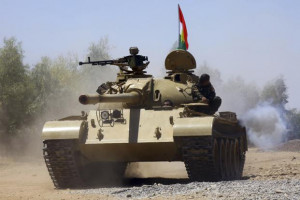
As such, while Turkey rhetorically respects Syria’s territorial integrity, it has still created a “safe zone” inside Syria, in the name of creating a shield against the Islamic State’s incursions into Turkey, and is pushing for bringing more of the Syrian territory under its direct control—a step that is akin to a de facto territorial disintegration of Syria due to a foreign (Turkish) occupation. Hence, the contention that while Turkey may not actually be seeking to create a permanent “zone” in Syria—something that Turkey and Russia have developed some understanding about —Turkey certainly has not changed its mind towards Assad’s future as Syria’s president (read: Turkish Foreign Minister, Mevlut Cavusoglu recently acknowledged in an interview that Turkey and Russia have disagreement over Assad’s future). This un-changed position makes Turkey more of a NATO ally, which it is by all means, and less of a partner of Syria and Russia against terrorism.
What the current nature of relationship between Turkey and Russia implies is that it is yet to convert itself into a full-fledged strategic alliance. Although we have seen a lot of progress towards normalization, this normalization is of tactical nature only wherein Russia appears to be an important actor for Turkey to neutralize the prospects of Kurds, who are being continuously supported by the US, establishing their own state i.e., Kurdistan. Besides it, Turkey also sees in Russia an opportunity to counter-balance its relations with the US and EU and send them a signal that it does have other ‘avenues of support.’
That Turkey’s rapprochement with Russia is of tactical nature only is also evident from the fact that this rapprochement and normalization has not so far created any rupture in NATO. This normalization is likely to stay what it actually is i.e., normalization and, as such, least likely to turn into a strategic re-alignment, although earlier signs had shown that it was not an impossibility.
What impedes this transformation is, as stated above, Turkey’s contradictory dual role in Syria, where it is carrying on NATO’s agenda of ousting Assad and where it is also seemingly targeting IS along with Russia and Syria.
What such a position further implies is that Turkey is tapping into both blocks to take advantage of its geographical location and achieve all of its major objectives i.e., oust Assad and roll back Kurds to other side of Euphrates river. While Turkey does aim at both targets, this perusal puts it in a conflicting position vis-à-vis Syria. Some recent incidents strongly indicate the potential of this conflicting position to transform into yet another war.
For instance, the advance by largely Turkmen and Arab rebels backed by Turkey towards al-Bab, the last urban stronghold of Islamic State in the northern Aleppo countryside, potentially pits them against both Kurdish fighters and Syrian government forces, leading to clashes between them.
Al-Bab is of particular strategic importance to Turkey because Kurdish-dominated militias have also been pursuing a campaign to seize it. Ankara is determined to prevent Kurdish forces from joining up cantons they control along the Turkish border. Turkey is backing the Syrian rebels with troops, tanks and artillery, as well as reconnaissance flights along the border.
However, while Turkey is out there to prevent the Kurds from having any territory under their control in Syria, Syria itself is not ready to ‘host’ Turkish troops on its territory. This has created the threat of direct clashes occurring between them. In fact, such incidents have already started to occur.
On last Friday, the Turkish military said that Thursday, November 24, air strike, which killed three of its soldiers, was thought to have been carried out by the Syrian air force. It would be the first time Turkish soldiers have died at the hands of Syrian government forces. Turkish President Tayyip Erdogan discussed this attack on Turkish troops in Syria with his Russian counterpart Vladimir Putin on Friday as Turkish-backed rebels pressed an offensive to take the Syrian city of al-Bab, a report from Turkey’s state-run Anadolu Agency stated.
While no major dispute of diplomatic and military nature has so far been reported developing between Turkey and Russia, this incident unambiguously underlines the fundamental disagreement both have in Syria.
Therefore, it is not energy-co-operation merely that would determine the future of their bi-lateral relations. While co-operation in this field required normalization, which they have already achieved, it is also quite clear today that the transformation of this normalization into a strategic realignment depends upon how smoothly both countries resolve their differences over Syria. In the coming months, the progress of the operation, as well as the battle for Aleppo, will become the decisive points in setting the trajectory of their bilateral relations.
Salman Rafi Sheikh, research-analyst of International Relations and Pakistan’s foreign and domestic affairs, exclusively for the online magazine “New Eastern Outlook”.
